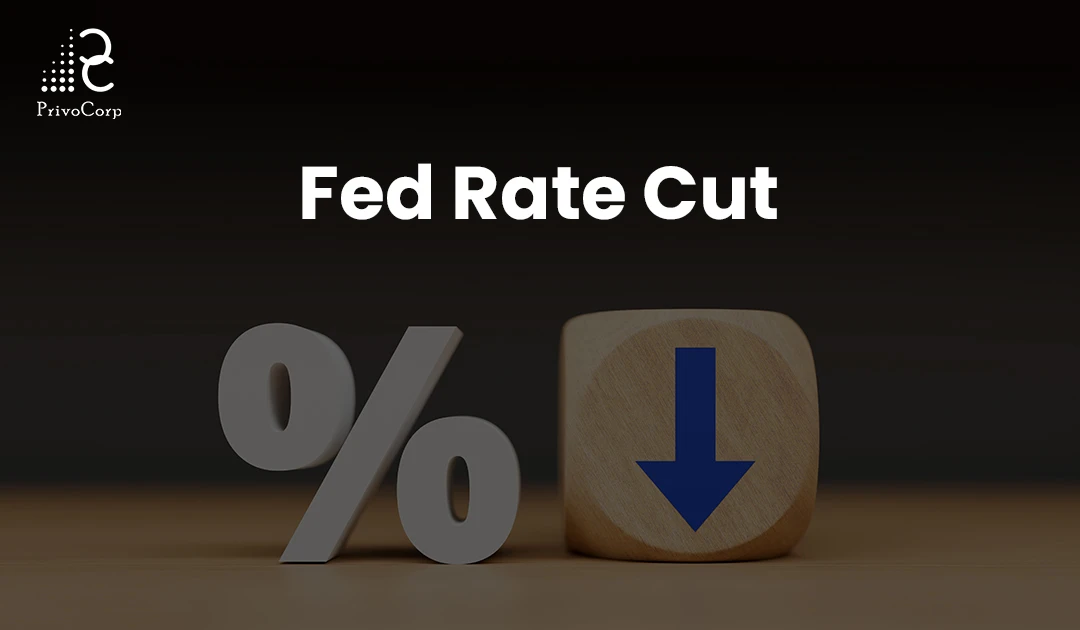In the ever-evolving landscape of real estate and finance, title services play a crucial role in ensuring smooth property transactions. As we navigate through an era of rapid technological advancement and changing consumer expectations, the title services industry is undergoing a significant transformation. From mortgage title services to title examination services, every aspect of the field is being reshaped by innovative technologies and shifting market dynamics.
In this comprehensive exploration, we’ll delve into six major shifts that are revolutionizing title services. These changes are not only reshaping how title searches for mortgages are conducted but also redefining the entire ecosystem of property transactions. Whether you’re a real estate professional, a lender, or a homebuyer, understanding these trends is crucial for staying ahead in this dynamic industry.
1. Digital Transformation Accelerates
The digital revolution has finally caught up with the title services industry, and it’s changing the game at an unprecedented pace. Traditional title services, often criticized for their paper-heavy processes and time-consuming procedures, are rapidly giving way to streamlined, digital workflows.
One of the most significant changes in this digital transformation is the adoption of e-closing platforms. These innovative systems allow for the entire closing process to be conducted electronically, from document preparation to signing. This shift not only speeds up the process but also enhances accuracy and reduces the risk of errors that can occur in manual data entry.
Moreover, the digitization of title searches for mortgages has revolutionized how title examination services are conducted. Advanced algorithms and machine learning technologies can now sift through vast databases of property records, liens, and encumbrances in a fraction of the time it would take a human examiner. This not only accelerates the process but also improves the accuracy of title searches, reducing the risk of overlooked issues that could complicate property transactions.
The impact of this digital transformation extends beyond just speed and accuracy. It’s also enhancing the customer experience in mortgage title services. Homebuyers and lenders now have access to real-time updates on the status of their title work, providing transparency and peace of mind throughout the process.
2. Remote Online Notarization (RON) Gains Traction
Remote Online Notarization (RON) is perhaps one of the most revolutionary changes in the title services industry in recent years. This technology allows notaries to witness document signings remotely through secure audio-visual connections, eliminating the need for in-person meetings.
The adoption of RON in title services has been accelerated by recent global events, which highlighted the need for contactless solutions in all industries. Now, homebuyers can complete their closing documents from the comfort of their own homes, while still adhering to all legal requirements for notarization.
This shift towards RON is particularly impactful in mortgage title services, where notarization is a critical step in the closing process. By removing geographical barriers and time constraints, RON is making the closing process more convenient and accessible for all parties involved.
However, the implementation of RON in title services isn’t without challenges. Each state has its own laws regarding notarization, and not all have fully embraced RON. Title companies and mortgage lenders must navigate this complex regulatory landscape to ensure compliance while leveraging the benefits of this technology.
Despite these challenges, the trend towards RON is clear. As more states adopt legislation supporting remote notarization, we can expect to see it become a standard feature in title services across the country.
3. Cybersecurity Concerns Intensify
As title services become increasingly digital, cybersecurity has emerged as a critical concern for the industry. Title companies handle sensitive personal and financial information, making them attractive targets for cybercriminals.
The rise of digital mortgage title services has created new vulnerabilities that cybercriminals are eager to exploit. From phishing attacks targeting real estate professionals to sophisticated hacks aimed at accessing title databases, the threats are diverse and ever-evolving.
In response, title service providers are investing heavily in robust cybersecurity measures. This includes implementing advanced encryption technologies, multi-factor authentication, and regular security audits. Many companies are also providing cybersecurity training to their employees, recognizing that human error is often the weakest link in digital security.
Moreover, as title examination services increasingly rely on digital platforms, ensuring the integrity and security of these systems has become paramount. Any breach in these systems could compromise the accuracy of title searches and potentially lead to fraudulent property transfers.
The intensifying focus on cybersecurity is not just about protecting data; it’s about maintaining trust in the title services industry. As consumers become more aware of digital security risks, they’re likely to favor title service providers who can demonstrate strong cybersecurity practices.
4. Consolidation Trend Continues
The title services industry is experiencing a wave of consolidation, with larger companies acquiring smaller firms at an increasing rate. This trend is driven by several factors, including the need for economies of scale, the high costs of technological investment, and the desire to expand market share.
For mortgage title services, this consolidation trend has significant implications. Larger companies can often offer more comprehensive services, from title searches for mortgages to title insurance and closing services, providing a one-stop-shop for lenders and homebuyers.
However, this consolidation also raises concerns about reduced competition and potentially higher costs for consumers. Regulators are keeping a close eye on these mergers and acquisitions to ensure they don’t lead to monopolistic practices in the title services industry.
On the flip side, the consolidation trend is also driving innovation. Larger companies have the resources to invest in cutting-edge technologies that can improve the efficiency and accuracy of title examination services. This could lead to faster, more reliable title searches and smoother closing processes for homebuyers.
Small to medium-sized title service providers are not sitting idly by. Many are forming strategic partnerships or joining networks that allow them to compete with larger firms while maintaining their independence. These collaborations often focus on sharing technology resources or combining marketing efforts to reach a broader customer base.
5. PropTech Partnerships Emerge
The rise of Property Technology, or PropTech, is creating exciting new opportunities in the title services industry. PropTech companies, which leverage technology to innovate in the real estate sector, are increasingly partnering with traditional title service providers to create more efficient, user-friendly solutions.
These partnerships are particularly impactful in the realm of mortgage title services. PropTech companies are developing platforms that integrate seamlessly with title search and examination processes, creating a more streamlined experience for lenders and homebuyers alike.
For instance, some PropTech firms are leveraging blockchain technology to create immutable digital records of property ownership. When integrated with title services, this technology has the potential to dramatically reduce the time and cost associated with title searches for mortgages.
Other PropTech innovations in the title services space include AI-powered document analysis tools that can quickly identify potential issues in property records, and virtual reality technologies that allow for remote property inspections as part of the title examination process.
These PropTech partnerships are not just enhancing existing title services; they’re also giving rise to entirely new service offerings. For example, some companies are now offering “instant title” services, leveraging big data and predictive analytics to provide near-immediate title commitments for certain types of properties.
As these partnerships continue to evolve, we can expect to see a blurring of lines between traditional title service providers and PropTech companies. This convergence is likely to result in more innovative, efficient, and customer-centric title services in the coming years.
6. Regulatory Changes on the Horizon
The title services industry operates within a complex regulatory environment, and significant changes are on the horizon. These regulatory shifts have the potential to reshape how title services are delivered and consumed.
One area of focus is the modernization of property recording systems. Many jurisdictions are moving towards digital recording systems, which could significantly streamline the title search process. However, this transition also requires careful regulation to ensure the security and integrity of these digital records.
Another regulatory trend to watch is the push for greater transparency in title services pricing. Some regulators are calling for clearer disclosures of title service fees, which could impact how title companies structure and present their services to consumers.
The growing adoption of RON is also prompting regulatory responses. As more states pass laws allowing for remote notarization, we’re likely to see a push for standardization of RON practices across state lines. This could greatly simplify the use of RON in mortgage title services, especially for transactions involving properties or parties in different states.
Data privacy is another area where we’re likely to see increased regulation. As title services become more digital and data-driven, regulators are focusing on ensuring that personal and financial information is adequately protected. This could lead to new compliance requirements for title service providers, particularly in how they handle and store sensitive data.
Lastly, there’s growing regulatory interest in the use of AI and machine learning in title examination services. As these technologies become more prevalent in title searches and risk assessments, regulators are likely to scrutinize their accuracy and fairness, potentially leading to new guidelines or restrictions on their use.
Conclusion
The title services industry is at a pivotal point in its evolution. Digital transformation, remote notarization, cybersecurity concerns, industry consolidation, PropTech partnerships, and regulatory changes are all converging to create a new landscape for title services.
These shifts present both challenges and opportunities for everyone involved in the real estate transaction process. For title service providers, staying ahead of these trends will be crucial for remaining competitive. This may involve significant investments in technology, partnerships with innovative PropTech firms, and a renewed focus on cybersecurity and regulatory compliance.
For lenders and real estate professionals, these changes promise more efficient, accurate, and user-friendly title services. The integration of title services with other aspects of the mortgage and real estate process could lead to smoother, faster transactions.
Homebuyers stand to benefit from these changes through faster closings, more transparent processes, and potentially lower costs as efficiencies are passed on to consumers. However, they’ll also need to be more vigilant about data security and privacy as more of the process moves online.
As we look to the future, it’s clear that the title services industry will continue to evolve rapidly. Those who can adapt to these changes and leverage new technologies and partnerships will be well-positioned to thrive in this new era of title services. Whether you’re a title professional, a lender, a real estate agent, or a homebuyer, staying informed about these trends will be key to navigating the changing landscape of property transactions.








